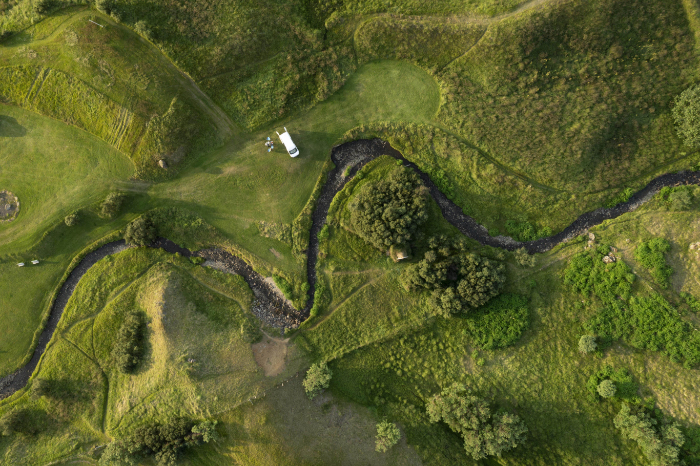What Are Geophysical Surveyors?
Geophysical surveyors use a range of tools and methods to explore the earth’s surface and subsurface. These surveys help understand physical properties such as rock properties and water levels without digging.
Geophysics supports many industries, including energy, archaeology, construction, and agriculture. Our approach ensures non intrusive and efficient surveying, helping clients make informed decisions about the land.
Key Services Offered by Geophysical Surveyors
We offer a wide range of geophysical survey services designed to meet diverse project needs. Our team delivers tailored surveys using methods like resistivity and magnetic susceptibility. We collect accurate data to support planning for commercial and residential construction.
By studying subsurface conditions, we detect buried objects, identify potential hazards, and assess contamination or voids. Our surveys are designed to support your project's success. With honest service and expert reporting, we give clients the confidence to move forward with minimal risks.

Techniques and Equipment Used in Geophysical Surveys
We carry out reliable geophysical surveys using tools such as ground penetrating radar and fluxgate gradiometers. These instruments help us map features and measure the depth of structures and materials below the ground.
We use resistivity to analyse physical properties and identify variations in subsurface conditions. Our team captures clear, high-quality data with each site survey, ensuring efficient fieldwork. This information helps us deliver comprehensive analysis and dependable support throughout the process.
With each survey, we focus on understanding the surface and subsurface to offer valuable insights. Our method ensures no key details are missed, making every survey an important part of the project's execution.
Applications of Geophysical Surveys
Geophysical surveys serve a variety of industries and applications. In archaeology, they help uncover archaeological remains. Farmers use geophysical methods to understand land and water conditions, improving soil use.
We support developers by mapping infrastructure and locating mine workings, cable routes, and other potential risks before construction begins. Our surveys are also used in energy projects, seabed assessments, and environmental studies. Every survey is designed to gather accurate information and reduce risks.
Mapping the seabed and land areas allows our clients to understand both surface and subsurface features. Our flexible and reliable approach ensures the survey suits each unique location and project area.

Benefits of Hiring Geophysical Surveyors
Choosing our geophysics team means accessing years of experience and proven expertise. We offer valuable surveys that uncover important information like voids, depth variations, and subsurface risks.
Our services are designed to help clients avoid costly damage, delays, or mistakes. With every project, we use a proven process to gather, analyse, and report data that supports safe and successful development. This efficient approach ensures you get results that match your project's needs and timeline.
We also help you understand findings through clear documentation and professional support, whether you are exploring the seabed, assessing land, or developing infrastructure. Let us be the team that helps your project succeed.
Frequently Asked Questions
Geophysical Surveyors
Find out more about our geophysical surveyors from our frequently asked questions. If you require any further information, feel free to get in contact on 01522 704900.
A geophysical surveyor studies what lies beneath the surface using different geophysical techniques. They focus on measuring physical properties such as rock layers and water levels to understand subsurface features like buried structures.
Surveys are needed before construction or infrastructure projects, or to check for potential hazards like contamination, flooding, or mine workings. They help in developing safe and informed plans.
Surveyors use equipment to send signals into the ground. These signals bounce back and form imagery of underground structures. The process helps detect important features and depth changes.
Yes. The techniques we use are non intrusive and safe for people, animals, and the environment.
The time depends on the survey area. A small site may take a few hours, while large surveys can take days. Each survey is designed to suit the project’s size and complexity.
Costs vary depending on the size, location, and type of survey. Please contact us for a tailored quote.
Yes. Surveys can identify buried objects such as pipes, cables, and other underground features important to your site.
Geophysical surveys focus on measuring underground physical properties without excavation. Geological surveys study earth materials like rock samples.
Light rain is often fine, but heavy rain or strong winds may delay the process to protect equipment and the team.
You receive a full report with survey results, including imagery, mapping, and analysis notes. These help ensure you understand the findings and risks.

